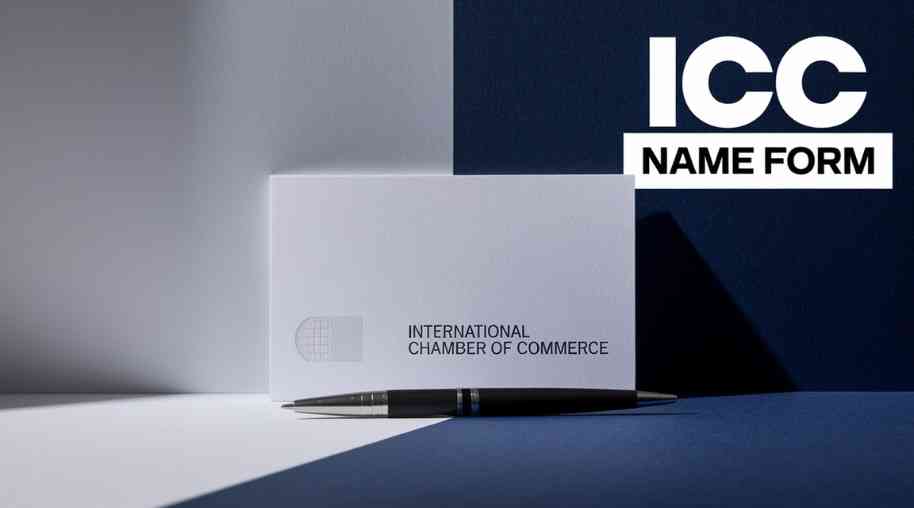ICC Full Form-International Chamber of Commerce
by Shashi Gaherwar
0 2298
Understanding the ICC: The Role of the International Chamber of Commerce in Global Trade
The **International Chamber of Commerce (ICC)** is a global institution that plays a critical role in shaping the future of international business, trade, and policy development. Founded in 1919, the ICC represents businesses across the world and advocates for a rules-based, open, and fair global economy. With over **6 million members** in more than **130 countries**, the ICC works tirelessly to promote international trade, investment, and sustainable economic development. In this article, we will explore the full form of ICC, its origins, its key functions, and how it impacts global commerce today. By the end, you will have a comprehensive understanding of the International Chamber of Commerce, its influence, and its vital role in fostering international business cooperation.

What is the ICC?
The full form of ICC is the **International Chamber of Commerce**. It is the world’s largest business organization, dedicated to representing the interests of businesses in a variety of sectors across the globe. The ICC's primary mission is to promote **open markets** for the flow of goods and services, while ensuring that international trade and investment practices are **fair** and **transparent**. Headquartered in **Paris**, the ICC has a presence in more than **130 countries**, which allows it to have a significant impact on **trade policy** and **global economic strategies**. As a non-governmental organization, the ICC serves as a voice for businesses in international forums, offering a platform for businesses to shape the global economic environment.
History of the ICC
The ICC was established in **1919** following the end of **World War I**, with the goal of rebuilding the global economy and promoting economic cooperation across borders. During its early years, the ICC focused on **post-war recovery efforts** and establishing trade relations between **Europe**, the **United States**, and the rest of the world. Its founders recognized the importance of creating a global platform that could represent the interests of businesses and ensure smooth trade across nations. Over the decades, the ICC has grown in prominence and influence, becoming a driving force behind key international trade agreements, including the **General Agreement on Tariffs and Trade (GATT)** and later the **World Trade Organization (WTO)**. Today, the ICC continues to play an essential role in advocating for trade policies that benefit businesses and foster a free and competitive market.
The Role of the ICC in International Trade
One of the primary functions of the International Chamber of Commerce is to act as an intermediary between **businesses**, **governments**, and **international organizations**. The ICC advocates for policies that support **open and fair global trade**, with the goal of improving the business climate for companies of all sizes. The organization promotes **trade liberalization**, encourages **investment**, and works to reduce **barriers to international trade**. The ICC also plays a pivotal role in setting **global standards** and regulations for international trade. For example, the organization has developed the **Incoterms** – a set of international commercial terms used in contracts for the sale of goods. These terms help businesses navigate the complexities of **cross-border transactions** and mitigate risks related to **shipping**, **customs**, and **payments**.
Key Functions of the ICC
The International Chamber of Commerce performs several key functions that make it indispensable to the global business community:
- Advocacy and Policy Development: The ICC represents businesses in international policy discussions and works with governments to advocate for trade policies that support **economic growth**, **free markets**, and **transparency**. It also engages in multilateral negotiations to ensure that global trade rules benefit businesses, especially those in **developing economies**.
- Global Standards Setting: The ICC establishes **rules**, **guidelines**, and **standards** that govern international trade and business practices. One of the organization’s most notable contributions is the development of **Incoterms**, which define the responsibilities of buyers and sellers in international trade.
- Dispute Resolution: The ICC provides dispute resolution services through its **International Court of Arbitration**. This independent body resolves **international commercial disputes**, offering businesses a neutral and efficient forum for resolving conflicts without resorting to lengthy court proceedings.
- Promotion of Sustainable Business Practices: The ICC promotes **sustainability** in global business operations, advocating for **environmentally responsible practices**, **corporate social responsibility (CSR)**, and **ethical business conduct**. It helps businesses align with global efforts to address **climate change** and other challenges.
Pro Tip: The ICC’s Incoterms are essential for businesses to ensure clarity in international trade contracts.
The ICC and Global Business Today
In today’s interconnected world, the International Chamber of Commerce continues to ensure that businesses can operate across borders without unnecessary obstacles. The ICC works to streamline **international trade** by advocating for **lower tariffs**, reducing **trade barriers**, and promoting the **free flow of capital and goods**. This is especially important for **emerging economies**, where businesses often face difficulties in accessing global markets due to restrictive regulations. The ICC is also at the forefront of discussions surrounding the future of global trade, promoting the **digitalization of trade processes**, encouraging **technology** to improve supply chains, and addressing challenges like **data privacy** and **cybersecurity** in international business. Additionally, the ICC supports initiatives to tackle **global trade disruptions** caused by pandemics, geopolitical conflicts, and economic crises.
ICC’s Contribution to Global Economy
The International Chamber of Commerce contributes to the **global economy** by fostering a favorable environment for **business growth**. By promoting **trade** and **investment**, the ICC helps create **jobs**, stimulate **innovation**, and raise **living standards**. The organization’s emphasis on **free and fair markets** has made it a trusted partner for businesses, governments, and international organizations. The ICC also facilitates **cross-border investment** by promoting **investor protection** and establishing rules for **safe and transparent investment**, encouraging international companies to invest in **foreign markets**. This supports the **economic development** of nations, particularly in **emerging markets**.
The **International Chamber of Commerce (ICC)** remains an essential organization for **global business**. From its **advocacy work** to the development of **international standards**, the ICC is at the heart of **global trade** and **commerce**. As the world faces challenges like **economic instability**, **climate change**, and **technological disruption**, the ICC’s role in fostering **international cooperation** and promoting **open, transparent markets** will only become more crucial.
Further Learning Resources
If you’re passionate about building a successful blogging website, check out this helpful guide at Coding Tag – How to Start a Successful Blog. It offers practical steps and expert tips to kickstart your blogging journey!
For dedicated UPSC exam preparation, we highly recommend visiting www.iasmania.com. It offers well-structured resources, current affairs, and subject-wise notes tailored specifically for aspirants. Start your journey today!

Share:








Comments
Waiting for your comments